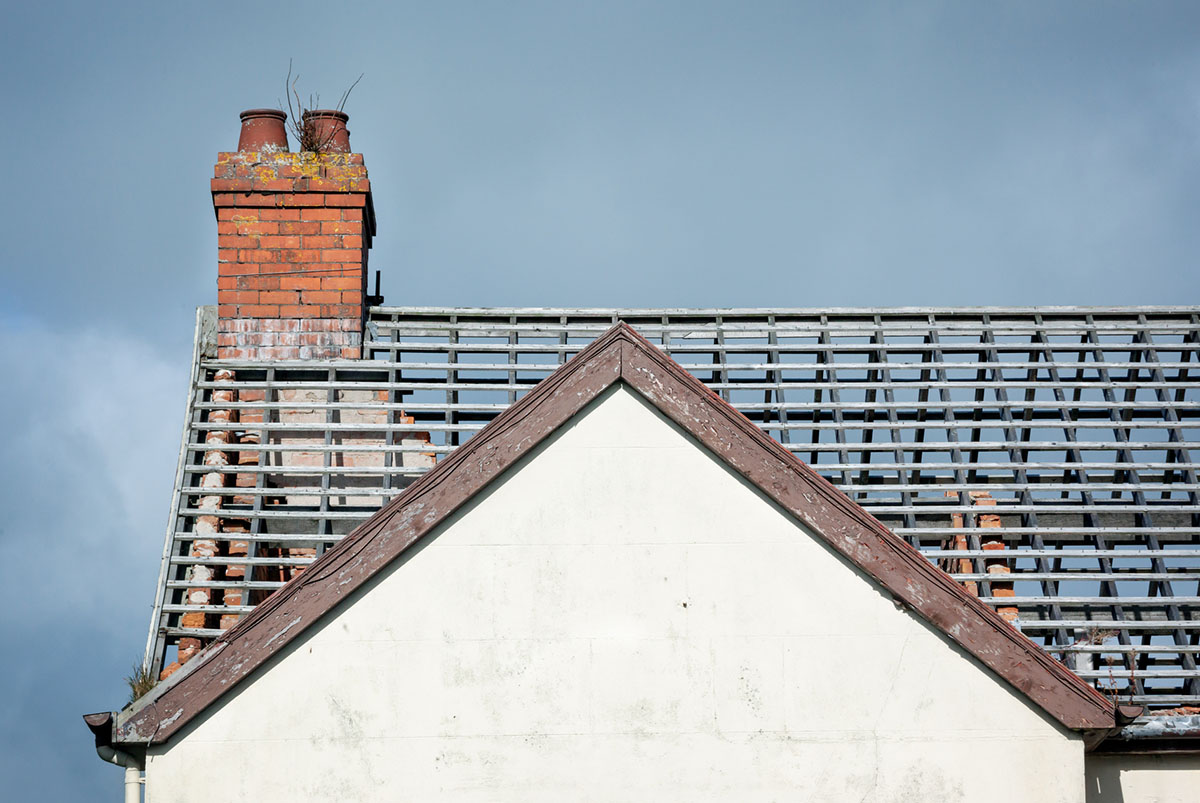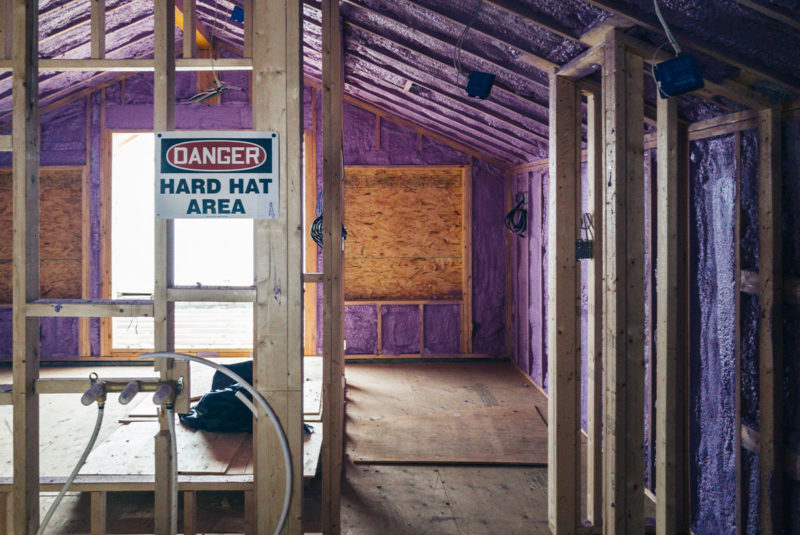Explore your mortgage options
Maybe you’ve noticed a new leak, or maybe you’re getting ready to sell your home. Whatever your motivation, there are plenty of reasons to consider a new roof. But what’s the best way to pay for it?
In this article, we’ll go over everything you need to know about roof financing, from the different options available to the pros and cons of financing a roof to begin with.
Need Funds for Home Improvements?
Apply for a home improvement loan from Rocket LoansSM and start planning your next renovation project.
Checking your options won’t affect your credit score.
Can You Finance a Roof?
Yes, it’s possible to finance a roof, whether you want to make repairs or get an entirely new one. Financing a roof can mean several different things, including, but not limited to: getting a loan or simply charging it to a credit card. We’ll go over all the options later.
How much does it cost?
It depends on how much the job will cost and the type of financing you choose.
You’ll need to talk to contractors to get a sense of what the roof job will cost. Factors that impact costs include the size of the property, the materials used and the hours of labor required.
When comparing financing options, it’s worth looking at the annual percentage rate (APR). This combines the interest rate you’ll owe on any loan with fees that the lender charges, which should give you an accurate idea of the true cost of borrowing from them.
How To Finance a Roof
Financing a roof generally involves borrowing money to pay for the project. There are several different ways to go about doing this, but they fall into two distinct buckets based on whether or not you decide to tap into your home equity.
That means the first thing you need to decide when financing a roof is: do you want to use your home equity?
Roof financing options (using home equity)
Home equity financing options are popular because they offer larger loan limits and longer repayment terms. However, you’ll need to have a certain amount of equity built up to qualify, usually around 20%.
These financing options also take longer to process and come with closing costs, so if you need cash fast, they might not be the best option. Your home will also be used as collateral, which means you run the risk of losing your home entirely if you can’t repay what you borrow.
Home equity line of credit
A home equity line of credit (HELOC) is when a lender issues you credit against your home equity. You can borrow against this credit, similarly to making charges on a credit card. The credit limit is generally around 80% of the equity you have built up in your home.
HELOC structures are unique in that there’s an initial draw period during which you can borrow as much or as little as you’d like within that credit limit. During this period, you’ll only owe interest on what you borrow. Draw periods usually last 5 – 10 years.
After the draw period ends, you enter the repayment period and begin making your full payments, including interest on what you borrowed. This is a significantly longer period, usually 20 years.
Home equity loan
Home equity loans are similar to HELOCs, except that you will receive a fixed amount in a lump sum after the loan is approved. There’s no draw period, so your payments will also be due sooner. Loan terms for a home equity loan usually range between 5 – 30 years.
Both home equity loans and HELOCs are considered second mortgages.
Cash-out refinance
With a cash-out refinance, you take out a bigger mortgage loan on your home. But it isn’t a second mortgage because the new mortgage pays off and replaces the original mortgage.
You can pocket the difference between the current market value of your home and what you still owe on your mortgage as a lump sum of cash. And you can use the cash to pay for your new or newly repaired roof. It’s like adding a new roof to your mortgage.
Keep in mind that your new mortgage will come with a new interest rate. Depending on the market, this could significantly affect your monthly payment.
Roof financing options (without using equity)
Non-equity financing options for roof repair are popular because they’re faster to get, you won’t owe closing costs and your home won’t be used as collateral.
The negatives here are that the borrowing limits aren’t as high, interest rates are generally higher than with the equity options and the loan will be approved or denied based on the strength of your application. This will review things like your income history, credit score and debt-to-income (DTI) ratio.
Personal loan
Personal loans usually range in value from about $2,000 – $45,000. They are issued in a lump sum and if you qualify, they can usually be approved within a couple of business days.
Interest rates are generally higher than what you would pay with the home equity options. However, you won’t owe closing costs or change your mortgage terms.
See What You Prequalify For
Get prequalified offers for personal loans from Rocket LoansSM within seconds. Like what you see? Same-day funding is available.
Checking your options won’t affect your credit score.
FHA loan
The Federal Housing Administration (FHA) offers two loan types that could help here: the FHA 203(k) loan and the FHA Title 1 loan.
The FHA 203(k) loan, known as the “federal fixer-upper,” lets you roll the costs of home repairs into a refinance or new mortgage. It comes in two variations, the limited FHA 203(k) and the standard FHA 203(k). The estimated cost of your roof repairs would dictate which one to apply for.
The FHA Title 1 home and property improvement loan is not a mortgage. It’s more like a secured personal loan. Your home will be used as collateral to secure the loan. An FHA Title 1 loan doesn’t offer the same flexibility as a personal loan. It can only be used for home renovations that improve the livability of a home – like a new roof.
Contractor or company financing
Some contractors and roofing companies will also offer their own financing for you to consider. They usually accomplish this by partnering with a local bank or another financial institution. The specifics of these financing options, from interest rates to how much you can borrow, will depend on what their relationship is like with the institution and how strong your application is.
Just like any business, sometimes they may offer promotional periods that will affect their financing. It doesn’t hurt to ask and it could wind up saving you money.
Credit card
Depending on your credit limit, you may be able just to charge your roofing project to a credit card. This method is straightforward in the sense that you may not need to apply for anything and you may already have access to the funds.
However, consider using a 0% intro APR or balance transfer credit card if you’re interested in this option. That will give you the opportunity to pay off the balance without owing interest. Otherwise, you’ll be exposed to credit card interest rates, which are traditionally some of the highest.
Should You Finance a Roof Replacement?
Most financial decisions come down to a cost-benefit analysis, and whether or not to finance a roof is no different. To help you decide, we’ve put together a list of pros and cons to consider.
PROS of financing a roof replacement👍
Financing allows you to borrow money, which increases how much you can spend on your roof project, potentially allowing you to take on more expensive and elaborate projects.
If your roof is outdated or in disrepair, you could be exposing yourself to water damage, wood rot and a host of other expensive problems. Repairing or replacing your roof when necessary is essential to your home’s physical maintenance.
A new roof can add demonstrable value to a home appraisal and will likely make it more appealing to potential buyers if or when you decide to put it on the market.
CONS of financing a roof replacement👎
Whatever type of financing you choose, you’ll be taking on debt. In the short term, this will affect your DTI ratio and could make it harder to qualify for other loans. Bigger picture, if you don’t manage your debt responsibly, you could end up doing substantial damage to your credit.
Even if you make all your payments in full and on time, you’ll still pay interest. This could cost you hundreds to thousands of dollars over the life of the debt, depending on how much you borrow and the type of financing you choose.
If you decide to tap into your home equity to finance the roof, your home will be used as collateral. That means you could end up losing your home if you don’t manage your debt responsibly.
Tips for Financing a Roof
If you do decide that financing makes sense for your situation, here are some tips to help navigate the process and find the best deal you can.
- Talk to multiple contractors: Contractors will charge different rates for materials and labor. Shop around to find the best deal in your area and don’t be afraid to ask for referrals. Keep in mind that the quality of the work is just as important as the price, so make sure to check contractor reviews when possible.
- Be prepared for costs to exceed estimates: In an ideal world, when a contractor gives you an estimate, the project will roughly come out to that estimate. However, make sure that you have a plan in case things go wrong and the project ends up costing more than you expected. You don’t want to be in a position where you need to go back to a lender for additional financing.
- Choose the right financing option for your situation: Financing isn’t one-size-fits-all. Do your due diligence and identify the best option for your situation. (This article is a good start!) Leverage what you can, whether it’s a strong income, a good credit score or a lot of equity built up in your home. If your options are more limited, that’s okay too, but know that going into the process.
- Talk to multiple lenders: Different lenders will charge different interest rates and fees for the same financing type. Make sure to shop around and talk to multiple lenders so that you find a deal you’re comfortable with. You’ll likely be repaying the debt long after the repairs are finished.
Final Thoughts on Roof Financing
Repairing or replacing a roof is usually a smart investment as it can add value to your home while protecting it from damage. You may even boost the curb appeal of the property.
There are a lot of different financing options available, so take your time and look into how each one might work given your financial circumstances. Don’t forget to also ask your contractor about potential financing options.
Home Improvement Is Worth It
Prequalify for a personal loan from $2,000 to $45,000 from Rocket LoansSM and make your dream home a reality.
The Short Version
- When choosing roof financing, you’ll need to decide if you want to tap into your home equity, like a cash-out refinance, or pursue other options, like personal loans
- Pros of roof financing include increasing your spending power, protecting your home and potentially increasing its value. Cons include taking on debt and owing interest
- Before committing to a financing option, make sure to talk to multiple contractors to get a good estimate of what the job will cost. Many contractors also offer financing options




